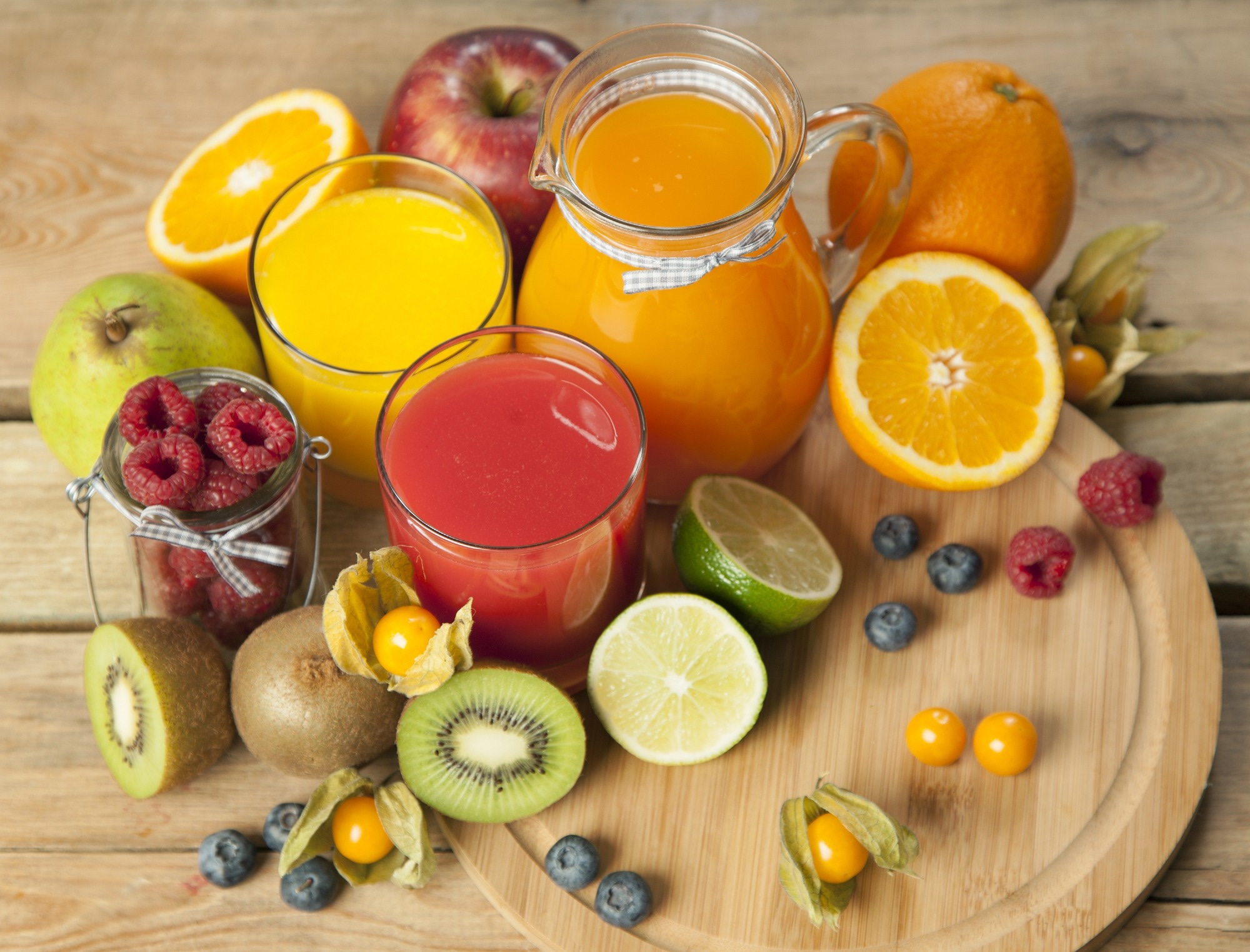A recent study published in Frontiers of Nutrition evaluates whether and how polyphenols in fruit juices mediate effects on cardiometabolic risk factors.
 Study: Are (poly)phenols contained in 100% fruit juices mediating their effects on cardiometabolic risk factors? A meta-regression analysis. Image Credit: Lisa A / Shutterstock.com
Study: Are (poly)phenols contained in 100% fruit juices mediating their effects on cardiometabolic risk factors? A meta-regression analysis. Image Credit: Lisa A / Shutterstock.com
The health benefits of fruits
Dietary polyphenols have received substantial research attention over the past few decades due to their health benefits.
Observational studies suggest a lower risk of cardiovascular disease (CVD) incidence and mortality with a higher intake of major flavonoids. Likewise, evidence from epidemiologic studies indicates that higher consumption of flavonoids, mainly from fruits, can reduce the risk of type 2 diabetes, hypertension, and CVD incidence and mortality.
Fruit juice consumption is a secondary choice to whole fruit intake due to the loss of fiber with extraction and classification of sugars in fruit juices as free sugars. While sugar-sweetened beverage consumption harms metabolic health, consuming 100% fruit juice does not increase cardiometabolic risks. Nevertheless, there is no information on fruit juice components exerting beneficial effects.
About the study
In the present study, researchers explore whether polyphenols in fruit juices mediate certain effects on cardiometabolic risk factors. To this end, the researchers systematically searched databases for dietary intervention studies investigating the impact of polyphenol-containing fruit juices on cardiometabolic risk factors. Studies with inadequate statistical data were excluded.
Eligible studies included randomized controlled trials (RCTs) analyzing the effects of the fruit juice intervention on cardiometabolic risk factors in adult populations excluding pregnant females and individuals with terminal-stage degenerative diseases. Studies were included if they used non-polyphenolic beverages as controls, reported the polyphenol content of the fruit juice, and assessed long-term effects.
Study quality was assessed using the Cochrane risk of bias tool. Separate analyses were performed for studies with different polyphenols and measurements for cardiometabolic risk factors. The mean differences of pre- and post-intervention changes were estimated between fruit juice and control groups.
A random-effects model was used to harmonize effect sizes. Heterogeneity was evaluated using the I-squared statistic and Cochran Q-test.
Pooled results were presented as mean differences with 95% confidence intervals. Additionally, meta-regression analyses were used to estimate intervention effects, with daily polyphenol intake amount as the moderator.
Fruit juice does not reduce risk of cardiovascular disease
The initial search identified 6,779 records, which was followed by title and abstract screening that excluded 6,616 articles. Full-text reviews further identified 124 ineligible studies, thereby leaving 39 trials for meta-regression analyses.
Twenty-five and 14 RCTs implemented parallel and cross-over designs, respectively. The duration of the intervention ranged between one and 16 weeks. Most studies were associated with an unclear risk of bias.
There were no significant effects of the intervention on biomarkers of cardiometabolic risks. Likewise, no mediating effect of total polyphenol content was observed. However, in a few sub-group analyses, a marginal protective effect of juices in reducing low-density lipoprotein (LDL) cholesterol levels in individuals with an increased CVD risk was observed.
Nevertheless, these effects were unrelated to the total polyphenol content. Eighteen comparisons illustrated the impact of fruit juice anthocyanins on total cholesterol levels.
Overall, a significant effect of the intervention on lipid measurements was observed, irrespective of the anthocyanin intake amount. This was a dose-dependent relationship, with more substantial effects for juices high in anthocyanins.
A 100 mg/day increase in anthocyanins was associated with a 1.53 mg/dL decline in total cholesterol levels. There were no effects of anthocyanin-rich juices on high-density lipoprotein (HDL) cholesterol levels.
In a sensitivity analysis, increased anthocyanin content was associated with decreased blood glucose levels in cross-over trials. No effects of anthocyanin-rich juices on blood pressure were observed.
Conclusions
The researchers did not observe a significant effect of total polyphenols on any of the studied outcomes. However, higher anthocyanin levels in juices supported LDL and total cholesterol reductions, with more potent effects in people at high risk of CVD. There were no effects on blood pressure, triglycerides, or blood glucose.
Taken together, the study findings indicate that anthocyanins in fruit juices might mediate beneficial effects on specific lipids. Nevertheless, future fruit juice trials are needed to correlate any potential benefits with total and specific polyphenol content measurements.
These findings suggest potential health benefits associated with increasing polyphenols in fruit juices by targeted plant breeding or through specific fruit varieties if the present findings are corroborated in the future.
- Micek, A., Currenti, W., Mignogna, C., et al. (2023). Are (poly)phenols contained in 100% fruit juices mediating their effects on cardiometabolic risk factors? A meta-regression analysis. Frontiers in Nutrition. doi:10.3389/fnut.2023.1175022
"juice" - Google News
June 21, 2023 at 09:21AM
https://ift.tt/GMwZmDs
Does drinking 100% fruit juice reduce risk of cardiovascular disease? - News-Medical.Net
"juice" - Google News
https://ift.tt/NgLkiat
https://ift.tt/hNuSrge
Bagikan Berita Ini














0 Response to "Does drinking 100% fruit juice reduce risk of cardiovascular disease? - News-Medical.Net"
Post a Comment